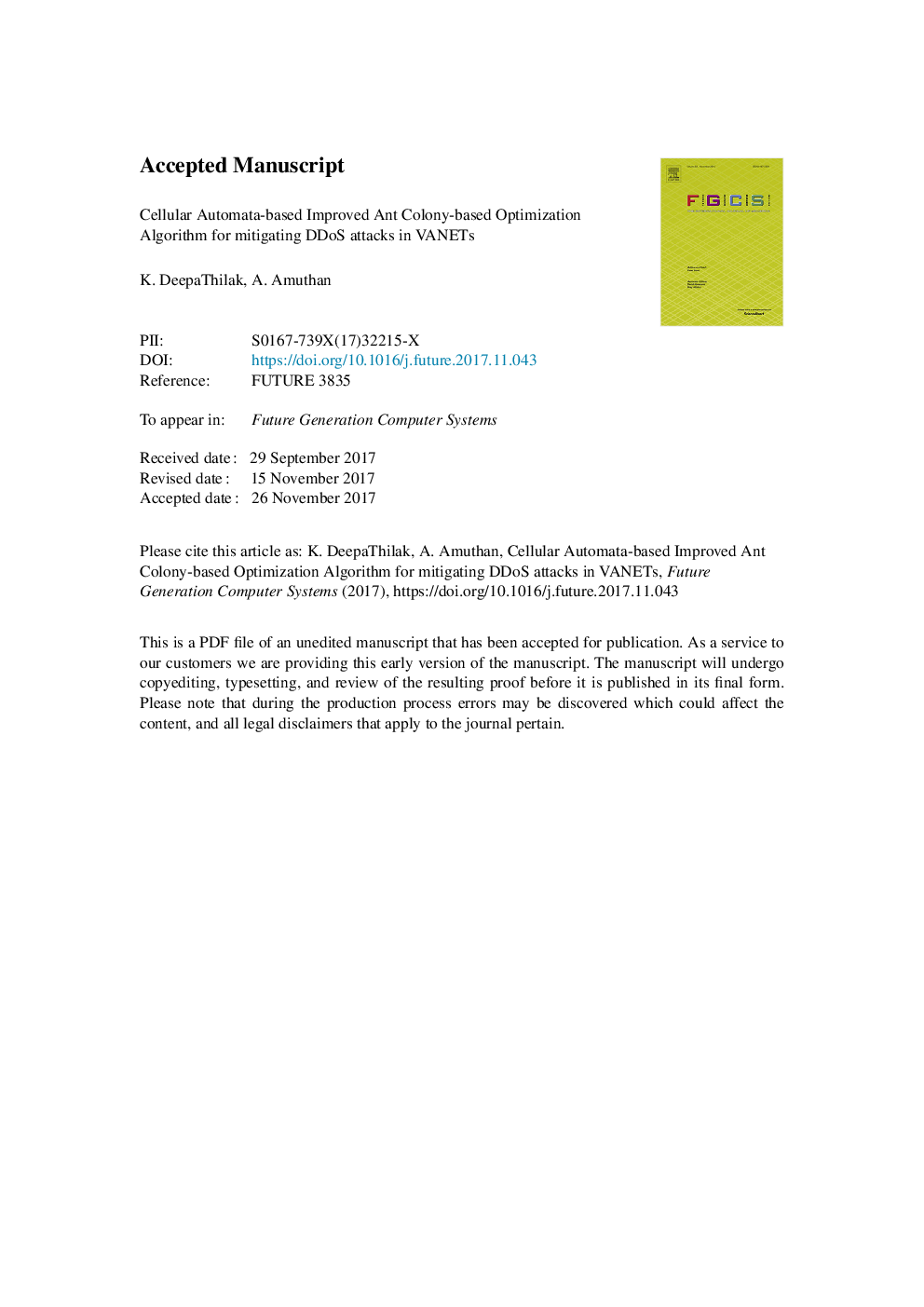| Article ID | Journal | Published Year | Pages | File Type |
|---|---|---|---|---|
| 6873208 | Future Generation Computer Systems | 2018 | 32 Pages |
Abstract
In Vehicular Ad hoc NETworks (VANETs), reliable data dissemination between vehicular nodes necessitate maximum degree of collaboration as they play a significant role for ensuring the core objective of communication. But the malicious action of vehicular nodes may disrupt the established degree of co-operation as they lead to poor performance in spite of high resource utilization. The malicious activity of vehicular nodes like DDoS attack must be detected and resolved in a potential way by identifying optimal nodes and optimal paths using cellular automata that modifies the search ability in a global way for increasing the speed of convergence. To prevent the search from falling into local optimum point and to enhance the convergence speed, global searching potential, an enhanced version of ant colony optimization (ACO) algorithm called Cellular Automata-based Improved Ant Colony-based Optimization Algorithm (CA-IACOA) is propounded. In CA-IACOA, the update rules and dynamic adaptive adjustment technique in pheromones of the traditional ACO is enhanced to a significant level based three threshold level of tolerance. This enhancement in the adopted pheromones mainly for attaining better quality solution through reliable and dynamic increment of pheromone that considers the past history related to the visited paths of the ant agents. Further significant tradeoff that exists between solving quality and solving efficiency is resolved using updated dynamic evaporation factor strategy that aids in rapid convergence. Furthermore, trusted boundary symmetric mutation strategy is incorporated in CA-IACOA for improving mutation and to strengthen mutation efficiency. The simulation experiments of CA-IACOA infers that they are potential in handling DDoS attacks as they obtain quality solutions in identifying optimal nodes and optimal paths for reliable routing.
Keywords
Related Topics
Physical Sciences and Engineering
Computer Science
Computational Theory and Mathematics
Authors
K. Deepa Thilak, A. Amuthan,
